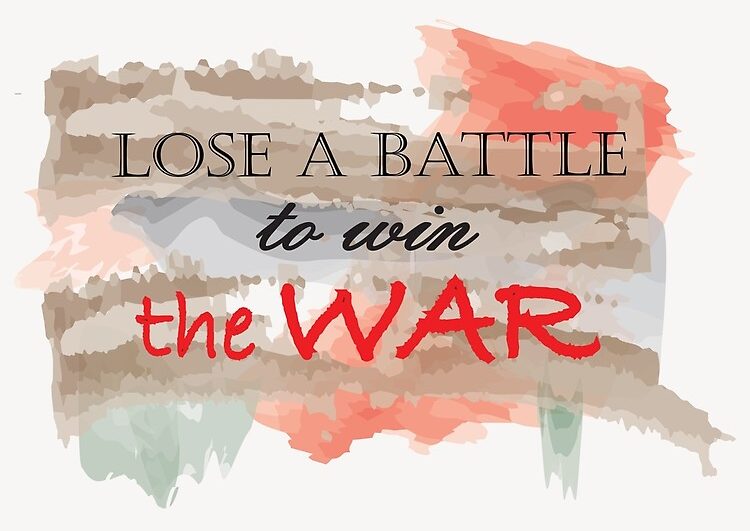
…the Church is not on the right path so long as it adapts itself to the present; nor is it on the right path as long as it holds fast to the past.
How do we know the Church is on the right path? — … the Church is headed in the right direction when, whatever the age in which it lives, the Gospel of Jesus Christ is its criterion..
Hans Kung – The Church
For years I’ve been concerned church is headed in the wrong direction. Church is an easy target, so it is not difficult find others willing to get on the bandwagon. We identify many problem but with no clear consensus on THE problem or WHY. I recently came across an essay entitled The Great Malformation: A personal skirmish in the battle for attention. Riffing on the article, I believe it connects some dots that help, in part, to explain why church is on not on the right path. Not THE problem, but a problem and perhaps insight to why.
In the article The Battle for Attention caught my attention (pun intended) and is the subject of this post. I encourage you to read the entire essay, however “The Battle for Attention” section is available below
Introduction
Western civilization, experienced a transformation in which economy, the pursuit of profits, engulfed and disfigured the culture. The church was also engulfed and disfigured. The engine for that cultural transformation has been: human attention.
Pursuit of profits has made attention exceedingly valuable and hotly contested. It is hard to think of any other “commodity”— that is as crucial to success in contemporary culture.
It is, then, a matter of no small consequence that human attention is now so heavily exploited.
Churches no longer enjoying “market” domination and compelled by FOMO; recognizing the power of attention and its crucial role in their “success”, joined the battle for attention.
The Battle for Attention – Marketplace examples of the battle for attention:
As marketers, we face a difficult task. It is up to us to ensure that the company’s brand awareness increases, that leads are generated and turned into sales and customers understand the products and services that the company provides.
At the same time, we have less opportunity to gain the customers’ attention as the amount of information increases.
Twenty years ago, Microsoft conducted a study that showed a person’s attention span, on average, was about 12 seconds before becoming distracted. 5 years ago, this time span was down to 8 seconds.
A study from DTU concluded in 2019 that people’s attention span will continue to decrease as we are bombarded with more and more information.
We have become accustomed to the fact that there are always new things, stories, and updates that we need to keep an eye on. It goes beyond our ability to concentrate and our ability to stay focused on what is right in front of us.
And that does not make our task as marketers any easier.
https://marketingplatform.com/resources/the-battle-for-attention/
How to win the battle for attention – despite distractions that bring instant gratification
Kirsten Back (MBA, MA)
Last week, I heard it again: “your audience has an attention span that only lasts a few seconds!”
Let me put that into context for you with regards to the content that you create and want your audience to read, remember, and act upon.
Your ideal scenario is that your ideal clients, notice your post, read it with focus and intention, remember the points you are making, and then reflect and act upon your content.
For that, you need to draw their attention, keep them engaged, understand your message, process your message, remember your message, take an action or get a positive outcome from your content that carries into their future.
That’s a lot that you expect from your audience (and that your audience expects from your content).
In this post, I am going to look into what your content is competing with and how you can win that competition with better content that your audience finds valuable and desirable enough to consume with their full attention.
https://www.linkedin.com/pulse/how-win-battle-attention-despite-distractions-bring-back-mba-ma-
Church and the Battle for Attention .
Churches’ decision to engage in the battle for attention carries significant risks and consequences:
Loss of capacity for sustained attention
Paradoxically, subjects of intense competition for their attention may suffer a loss of capacity for sustained attention. Because of increased screen time, it appears competition for attention contributes to increased diagnosis of ADHD. Eventually, people subjected to perpetual assault for their attention will disengage and zone out.
Risk of distraction / redirection/ backlash
Rather than addressing spiritual needs, leaders in a battle for attention assume responsibility for creating desire.
Commitment to a battle for attention inherently redirects priority for worthy goals to the task of creating better ad content to capture people’s attention. Creating desire, at a minimum, is a distraction, at worst, can become a substitute for the core mission— means become the ends.
Battle for attention influences every facet of church life
Some want mitigate the risk of engaging in the battle for attention by arguing if we can get people’s attention the gospel can be shared. Assuming “click bait” that grabs attention of post -modern people will make them open to the gospel is not wise. When “click bait” churches employ is in tune with secular desires, it can produce a ” bait and switch” backlash when the gospel is presented.
Unplanned enculturation of children and re-enculturation of adults
Churches engaging in the battle for attention should recognize the power of winning attention to shape the culture, children and adults. They need look no further than the effects of social media, smartphones, virtual experiences including video games on our psyches . There is potential to penetrate every passing moment of people’s lives. It is a bad bet for churches to place their money on winning the battle for attention; particularly when winning results in sated consumers not converts.
Subjects of the battle for attention face “a hydraulic insistence on conformity to majoritarian standards”. Campaigns to sustain unreflective allegiance of people to the prevailing form of religious life; interfere with parents efforts to pass along their convictions and way of life to their children; essentially limiting their free exercise of religion.
Consumerist proslelytism (i.e. battle for attention)
The nature of consumerist proselytism does not require true believers. It does require attention brokers willing to convey a message that consumption is a centrally important pathway to the happy life. Their task is to provide a picture of the good life and an ideological justification for seeking it. They can make their messages maximally effective, even if they do not believe what they are peddling to be good or on spite of any distaste they might have for the process. Increasingly, criteria for hiring church staff’ include qualifications of attention brokers.
There is a lot to think about and certainly debatable, bringing attention to the “the battle of attention” will hopefully generate thought and productive conversation. Future posts will address the implications of abandoning “the battle for attention” and what church might look like as a “loser”.
Feedback is appreciated.
STILL ON THE JOURNEY
This post is a continuation of posts on THE CHURCH from 2021 and 2022. Some earlier posts were added to the category. All sixteen posts can be read HERE.



